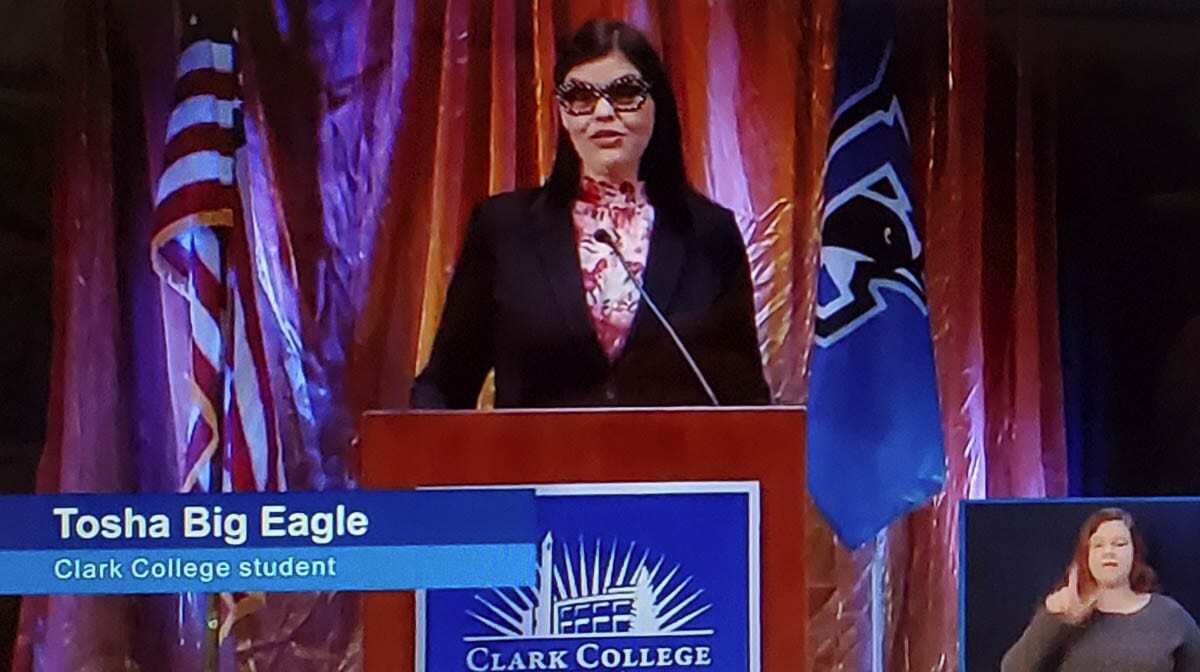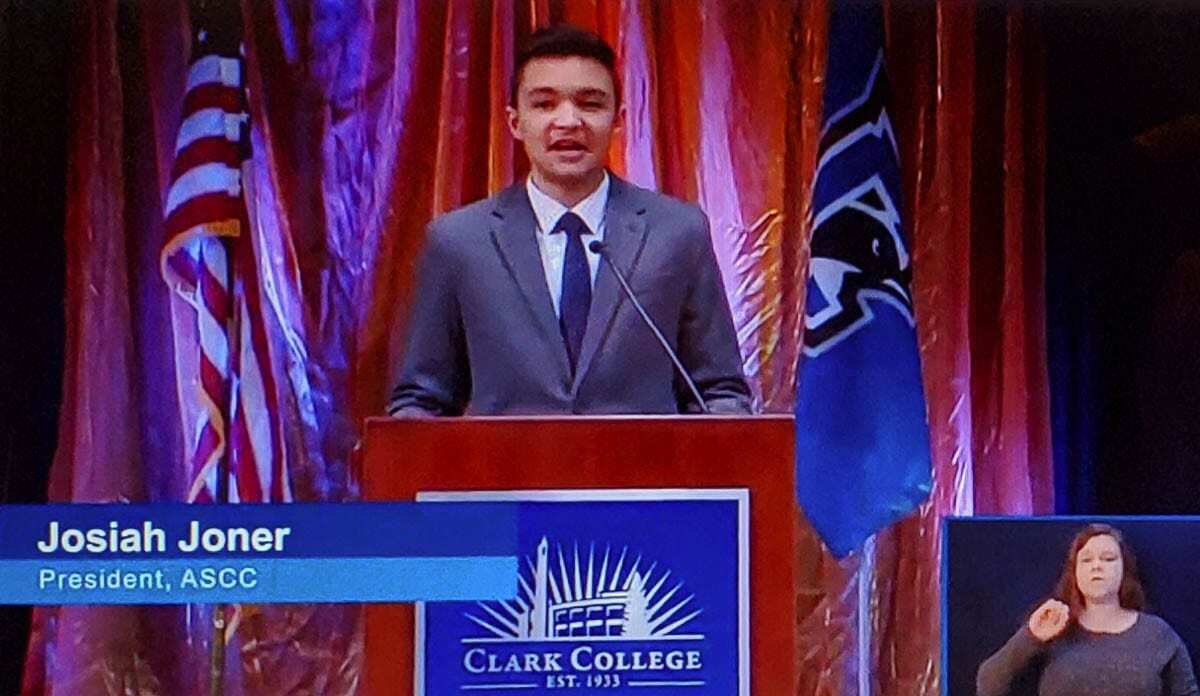Student leaders, President of Clark College, deliver inspirational address for the challenging year ahead
College officials and students hold out during the coronavirus pandemic
By Dan Trujillo
For ClarkCountyToday.com
Since March 2020, students, faculties and staff at Clark College have felt stranded on an iceberg above the treacherous waters caused by the coronavirus pandemic.
As that iceberg continues to melt, the penguins shared their determination and goals for the future during the college’s online address on Thursday.
More than 140 viewers tuned in on YouTube and watched Dr. Karin Edwards, President of Clark College, spoke for 30 minutes. Although there was no schedule for returning to face-to-face learning, Edwards spoke about how Clark was responding to COVID-19, budget challenges, and promoting racial equality. Associate students of Clark College President Josiah Joner and 2021 Transforming Lives Award nominee Tosha Big Eagle shared their stories of life on and off campus in this changed reality.
Dr. Karin Edwards
“When I took on the role of President last February, I knew transitioning to my first year role would be challenging, but I couldn’t have predicted how challenging,” Edwards said.
“I am grateful to every person in any position who has penetrated themselves to make changes to the way we work to keep Clark open and keep the students in class,” she added. “The progress made over the past year will serve us well in the future.”
Through research over the past year, Edwards and her colleagues found that white students were more likely to complete their introductory courses than color students. Edwards believes this is due to systemic racism, economic disparities, and lack of food, supplies, and home stability. A pandemic only exacerbates these differences.
Clark College addressed these challenges by launching a new professional development program called BUILD (Broadening Understanding of Intercultural Development). The penguin pantry provided 576 food boxes for students. Information Technology Services has lent nearly 900 laptops and WiFi hotspots to students. Thanks to the Clark College Foundation, community organizations, and the Federal Cares Act, 12,000 students received grants to continue their educational trips.
“It was grueling work in the kitchens and bedrooms of the staff that became home offices,” Edwards said. “I would like to take a moment to praise our facility and our staff, and tell them it was all worth it. Your innovation and dedication really helped keep our students on a promising path through this crisis. “
Tosha Big Eagle has dealt with crisis for most of her adult life. At the age of 19 she became addicted to meth and dropped out of college.
“It packed my life,” said Big Eagle.
 Tosha Big Eagle
Tosha Big Eagle
She was first detained when she was 21 years old. Upon her release, Big Eagle said she was resuscitated with hope and determination. She finished treatment and started college again.
Big Eagle was blind from her father’s death in 2008. He moved in and they worked to mend their relationship, but he couldn’t break his addiction cycle. He overdosed on prescription methadone while she was studying for a college finals.
“Heartbroken, I felt responsible. Like I could have stopped it, ”said Big Eagle. “Unfortunately, I’ve turned my pain into a heroin addiction.”
In 2010 she was back in prison. During her seven-year prison sentence, she attended all available courses and counseling sessions. She learned to be “a fair and caring person who leads with respect and love”.
After jail, Big Eagle found it difficult to find employment. After giving birth to a son, she decided to invest in her education and enrolled at Clark College. She is pursuing a Bachelor in Human Development from Washington State University in Vancouver and is completing a certificate as an addiction education consultant at Clark College.
“While addiction, trauma, and incarceration have touched my life, they don’t define who I am,” Big Eagle said.
“Our future lies with our children,” she added. “I believe that if we raise them at a young age, we can reduce the risk of addiction, violence and poverty.”
Clark College was like a second home for Josiah Joner. His parents, siblings, grandmother, aunt and cousins attended school.
“We are truly a Clark College family and we would not be where we are today without Clark,” said Joner.
 Josiah Joner
Josiah Joner
While Joner is grateful for the opportunities Clark College offers, he’s not about to gloss over the stress of online learning and say that everyone at Clark is fine.
“Because we are not. It was a turbulent and exhausting year on all fronts, ”he said.
“While it’s true that we’re all in it together, we’re not in the same boat,” added Joner. “I think the best we can do for the students now is to be there for them.”
With this in mind, members of the Clark College student government have created a resource and operations webpage to accompany the school’s online learning system. According to Joner, hundreds of students are accessing the site.
“We hope that the site will continue to grow and expand over the next few months to become a central hub for student resources,” added Joner.
Edwards says that “a new and different normal” is ahead for students and staff at Clark College. She refers to a 2006 book by John Kotter entitled “Our Iceberg is Melting”.
Edwards said it was a story of penguins learning to work together under the stress of uncertainty and rapid change.
Sounds like the new normal for 2021 and beyond.


